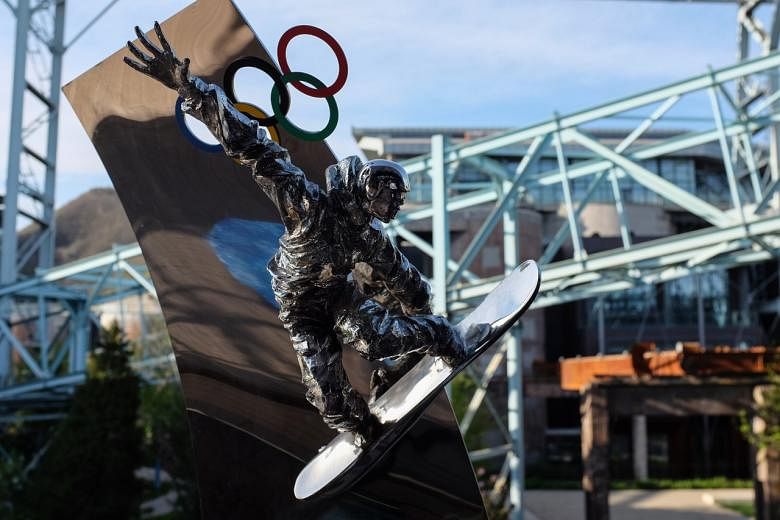BEIJING (BLOOMBERG) - Chinese President Xi Jinping vowed to hold a successful Winter Olympics next year in Beijing, responding to challenges the event faces from the coronavirus pandemic and international criticism over alleged human rights abuses in Xinjiang.
"With the active support and participation of all parties, we're confident about overcoming the impact of the pandemic and hosting a simple, safe and splendid Olympics," Xi told a gathering of ambassadors in Beijing, covered by state television Wednesday evening.
The Beijing Winter Olympics set for February will be a test for Xi to see if he can calm tensions with global powers that have raised the possibility of boycotts. His government will also need to provide assurances about Covid-19 protection measures after the US and others criticized a World Health Organisation report in March on the origins of the coronavirus, calling it incomplete and faulting data and access provided to its authors by China.
Among the envoys at the event with Xi at the Great Hall of the People was the UK's Caroline Wilson, who was recently summoned by China's Foreign Ministry after London imposed sanctions on Chinese officials and entities over accusations of forced labor in its far western region of Xinjiang.
Despite insistence from International Olympic Committee officials that sports and politics are separate, the Olympics have been enmeshed in complicated developments in world affairs and controversies for decades. One of the most pressing diplomatic matters for the Beijing Winter Olympics has been the alleged human rights abuses in Xinjiang. The United Nations says up to 1 million Muslim Uighurs have been put in internment camps and compelled to work. China denies the charges, saying it is combating terrorism and providing economic opportunities to an impoverished people. Beijing responded to the sanctions imposed by the US, UK and European Union with measures of its own.
Foreign diplomats in China have been debating whether to boycott the Olympics and discussed the possibility that top dignitaries stay away, while athletes compete and sponsors participate.
Given the importance of China to the global economy and the sensitivity Beijing has toward hosting the global sports spectacle, most doubted there would be an outright boycott. White House spokeswoman Jen Psaki earlier this month dismissed the idea that the US was discussing any joint boycott with allies, walking back comments from the State Department that suggested such a move could be in the cards.
China Foreign Ministry Spokesman Zhao Lijian said a boycott would harm the interests of athletes and "runs counter to the spirit of the Olympic charter." The Beijing Winter Olympics start about six months after Tokyo hosts the virus-delayed Summer Games, where measures including a ban on overseas spectators have been put in place to prevent it from becoming a superspreader event.

